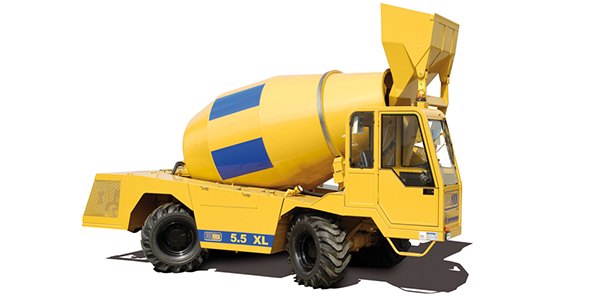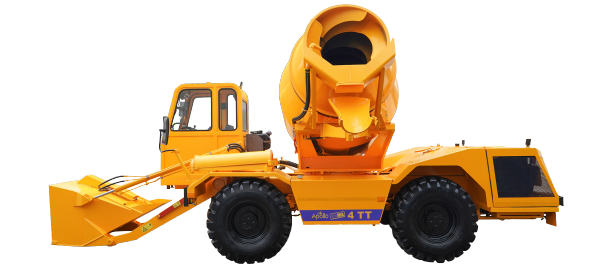
Concrete is a critical material in construction, and concrete mixers are indispensable tools for producing it efficiently and effectively. These machines are designed to mix cement, aggregates, and water into a homogeneous mixture, ensuring durability and consistency in the final product. This article delves into the workings, types, and advantages of concrete mixer machines and addresses trending topics and frequently asked questions related to their use.
Understanding Concrete Mixer Machines
A concrete mixer machine, often referred to as a cement mixer, is a device that combines cement, sand or gravel, and water to produce concrete. It eliminates the need for manual mixing, reducing time and labor while improving precision.
Key Components
- Drum or Mixing Barrel: The rotating drum where ingredients are mixed.
- Blades:Fixed or rotating blades inside the drum for efficient mixing.
- Motor or Engine: Powers the rotation of the drum.
- Discharge System:Facilitates pouring mixed concrete into molds or construction areas.
Types of Concrete Mixer Machines
Concrete mixers come in various types, each catering to specific construction needs:
- Batch Concrete Mixers
- Tilting Drum Mixers: Suitable for projects requiring high mobility and small-to-medium volume. They discharge concrete quickly.
- Non-Tilting Drum Mixers: Used for large volumes. The drum remains stationary, and concrete is discharged by reversing the drum.
- Reversing Drum Mixers: Equipped with two openings, one for feeding and the other for discharging.
- Continuous Mixers
Ideal for large-scale construction projects, continuous mixers produce concrete without interruptions, ensuring a steady supply.
- Self-Loading Mixers
These machines combine loading, mixing, and discharging functions. They are highly versatile and ideal for remote construction sites.
- Truck Mixers
Mounted on trucks, these mixers transport concrete to construction sites. They are commonly used in large infrastructure projects.

Trending Topics in Concrete Mixer Machines
The construction industry is witnessing technological advancements that enhance the functionality and efficiency of concrete mixers. Here are some trending topics:
- Smart and Automated Mixers
Automation has revolutionized the construction industry, and concrete mixers are no exception. Modern machines come equipped with IoT sensors and AI-driven controls to monitor and adjust mixing parameters in real time. This innovation reduces human error and ensures precise mixing ratios.
- Electric Concrete Mixers
With growing concerns about environmental sustainability, electric mixers are becoming popular. They emit zero emissions and are energy-efficient, making them suitable for urban construction projects.
- Portable Concrete Mixers
Compact and lightweight, portable mixers are trending for their ease of transportation and versatility in small construction projects and DIY tasks.
- Sustainability in Concrete Mixing
Innovations such as using recycled aggregates and low-carbon cement in concrete mixers are gaining traction. These eco-friendly practices reduce the environmental impact of construction.
- Advanced Mixing Technology
Techniques like high-performance concrete (HPC) mixing and self-compacting concrete (SCC) production are in demand. These require advanced mixers capable of achieving specific rheological properties.
Advantages of Concrete Mixer Machines
- Efficiency: Mixers produce large quantities of concrete quickly, saving time and labor costs.
- Consistency: Ensures uniform mixing of ingredients, resulting in durable concrete.
- Mobility: Portable and truck-mounted mixers enable easy transportation to construction sites.
- Versatility: Suitable for a range of projects, from small repairs to large infrastructure developments.
- Cost-Effectiveness: Reduces reliance on manual labor and speeds up project completion.
Common Challenges with Concrete Mixers
While concrete mixers offer numerous benefits, they also come with challenges:
- Maintenance:Regular cleaning and maintenance are required to prevent concrete build-up in the drum.
- Operator Training: Improper use can lead to uneven mixing or machine damage.
- Initial Investment:High-quality mixers can be costly, but they pay off in the long run.
FAQs on Concrete Mixer Machines
A1: Choosing the right mixer depends on factors like project size, location, and budget. For small projects, portable mixers are ideal. For large-scale construction, consider truck-mounted or batch mixers.
A2: Yes, concrete mixers can be used to mix other materials like mortar, plaster, and grout. However, ensure proper cleaning before switching materials to avoid contamination.
A3:
- Clean the drum after every use to prevent concrete hardening.
- Lubricate moving parts regularly.
- Inspect and tighten bolts and screws periodically.
- Replace worn-out blades to maintain mixing efficiency.
A4: Electric mixers are eco-friendly, quieter, and require less maintenance. However, diesel mixers are more powerful and suitable for remote areas without electricity.
A5: With proper maintenance, a high-quality concrete mixer can last 10-15 years. Regular inspections and timely repairs can extend its lifespan.
A6: Yes, but precautions are necessary. In cold weather, ensure ingredients are preheated, and in hot weather, mix concrete quickly to prevent premature setting.
A7: Self-loading mixers are equipped with a loading bucket that feeds materials into the drum. The machine measures and mixes the materials, and the drum can be rotated to discharge concrete at the desired location.
A8:
- Wear protective gear, including gloves and goggles.
- Never insert hands or tools into the drum while it's operating.
- Ensure the machine is on a stable surface to prevent tipping.
- Follow the manufacturer’s guidelines for operation and maintenance.
A9: Yes, advanced concrete mixers are designed to handle HPC by ensuring thorough mixing of its dense and fine ingredients. However, traditional mixers may struggle with HPC due to its specific requirements.
A10: Yes, sustainable practices like using electric mixers and incorporating recycled materials in the mix are eco-friendly options.
Conclusion
Concrete mixer machines are essential in modern construction, offering efficiency, consistency, and versatility. With advancements in technology, these machines are becoming smarter, more sustainable, and better suited for diverse applications. Whether you’re a contractor handling large projects or a DIY enthusiast, there’s a concrete mixer tailored to your needs.
Understanding the types, trends, and maintenance requirements of these machines ensures optimal performance and longevity. As the construction industry evolves, concrete mixers will continue to play a pivotal role in building a sustainable and efficient future.
Recent Articles
- Market Growth and Future Trends in Self-Loading Concrete Mixers for the Construction Industry
- How Self-Loading Concrete Mixers Reduce Labour Costs and Increase Productivity?
- Comparing Self-Loading Concrete Mixers vs. Traditional Concrete Mixing Methods
- The Role of Self-Loading Concrete Mixers in Modern Construction
- Self-Loading Concrete Mixer Machines for Infrastructure Development Projects
Copyright © 2025, Apollo Carmix Equipments Private Limited (ACEPL), All rights are reserved.
Web Design & SEO by Webmasterindia

